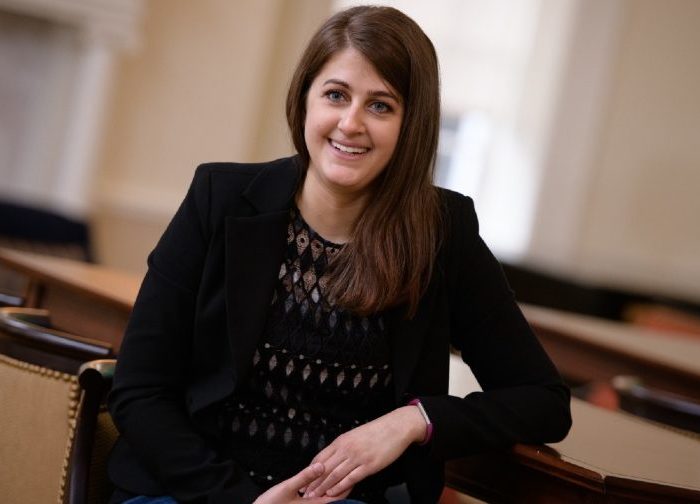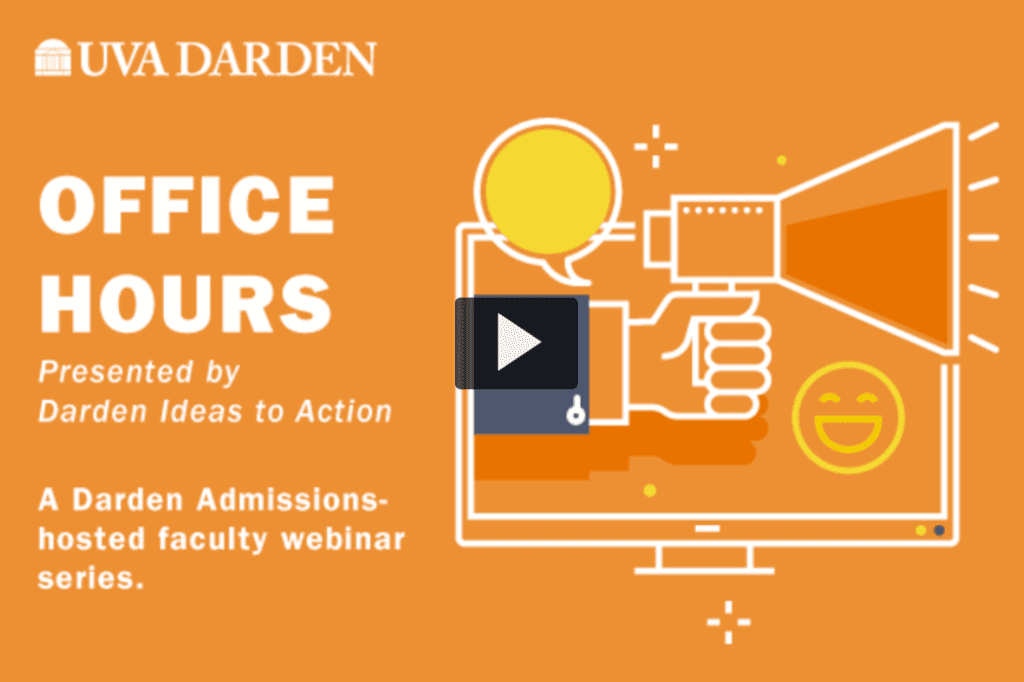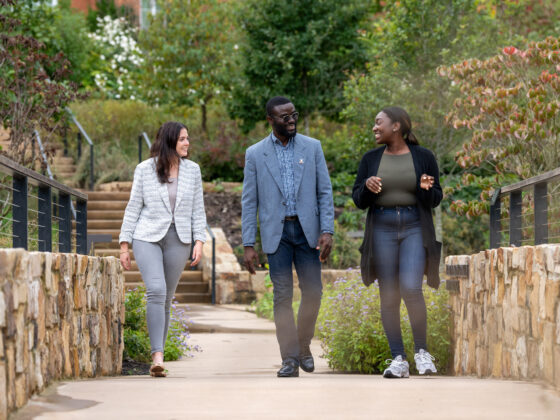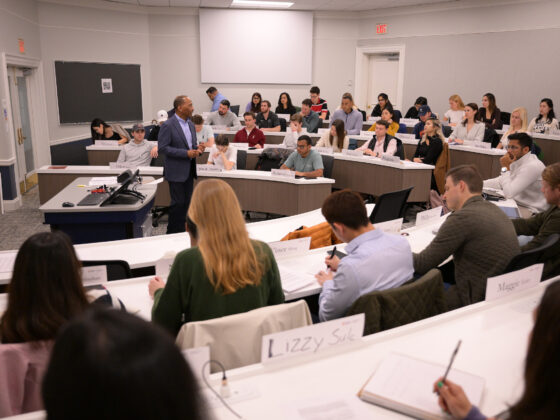Global Economies and Markets Professor Kinda Hachem joined Darden Admissions for the latest installment of “Office Hours”, presented by Darden Ideas to Action. View the recording or check out an audio version by streaming the conversation on the Experience Darden or ExecMBA podcasts. Learn more about SPACs, GameStop and Bitcoin, in addition to what it’s like to learn finance through the case method in the March 2021 “Office Hours” session with Professor Rich Evans.
Senior Director of Admissions Brett Twitty spoke with Hachem about her early start working with a central bank in Canada, how Darden Professor Frank Warnock inspired Hachem to join the Darden faculty and move to Charlottesville and her take on the current economic environment and Covid-related financial implications. Hachem focuses on the macro side of economics, looking at connections between macroeconomics and banking, financial stability risks and how central banks respond to them.
When asked how she decides on topics for her elective course, The Economics of Money and Banking, a course on financial stability and central banking, Hachem shared “Fundamentally, all spectacular collapses have a few things in common. I look for crises or major events in banking systems that on the surface seem very different — it’s a different country with a different set of institutions with different dependencies on the global economy, different financial products that are at the center of the problem. But when you boil it down, it all comes down to a similar formula where they lend long term and they borrow short term; people don’t internalize the risks and then you get a massive run. If you think about it, Iceland is one of the biggest banking collapses that occurred — it was country-wide and what made it a bit more stark was how quickly the banking sector grew. We’re talking a matter of a couple of years where they had a massive run-up in the banking system and then two years later it’s completely gone. So (in class) we look for episodes of volatility and things that seem like they’re different. The course is not about studying one specific crisis or one specific policy episode — it’s going through these different cases and teasing out the commonalities.”
Hachem came to Darden from a school where her course was a traditional lecture-based approach. She acknowledged some apprehension about transitioning to Darden where the case-based approach is quite different and student-centric. Hachem said, “It’s a lot of fun because the students come prepared. They know that the onus is on them to push the discussion forward. My role is simply to be the ‘Econ police’ and tie things back to a structure that lets us walk through from shock to outcome and make sure that people aren’t making implicit assumptions along the way. You hear so many different perspectives and people are hashing out ideas with each other. The class really takes on a life of its own and then coalesces around a fundamental point. That a-ha moment comes for people at different points throughout our 85-minute class. Different people will connect with different ideas and then bring that into the classroom and you eventually sift through the details and settle on the fundamental issue.”
During the session, Hachem also discussed the need for an exit strategy on monetary policy now that COVID-19 financial instability is starting to level out, why cryptocurrency can be considered an investment instrument more than a monetary instrument, the principles of a global tax rate, why cybersecurity-related risks are the next biggest threats to financial systems and the importance of all countries being able to fully recover from the COVID-19 pandemic.
Interested in more faculty thought leadership discussions? Sign up for more “Office Hours” events below!
7 May | Professor Dennie Kim: Strategy, Ethics and Entrepreneurship
4 June | Professor Greg Fairchild: Entrepreneurship, Business Strategy, Business Ethics, Leadership
9 July | Lili Powell: Leadership, Management, Mindfulness and Corporate Communication
Be sure to consult the Latest News regularly for the most updated news releases and media hits. Check out faculty thought leadership published on Ideas to Action. And stay connected with us via social media: Facebook, Instagram, LinkedIn, Twitter, WeChat






